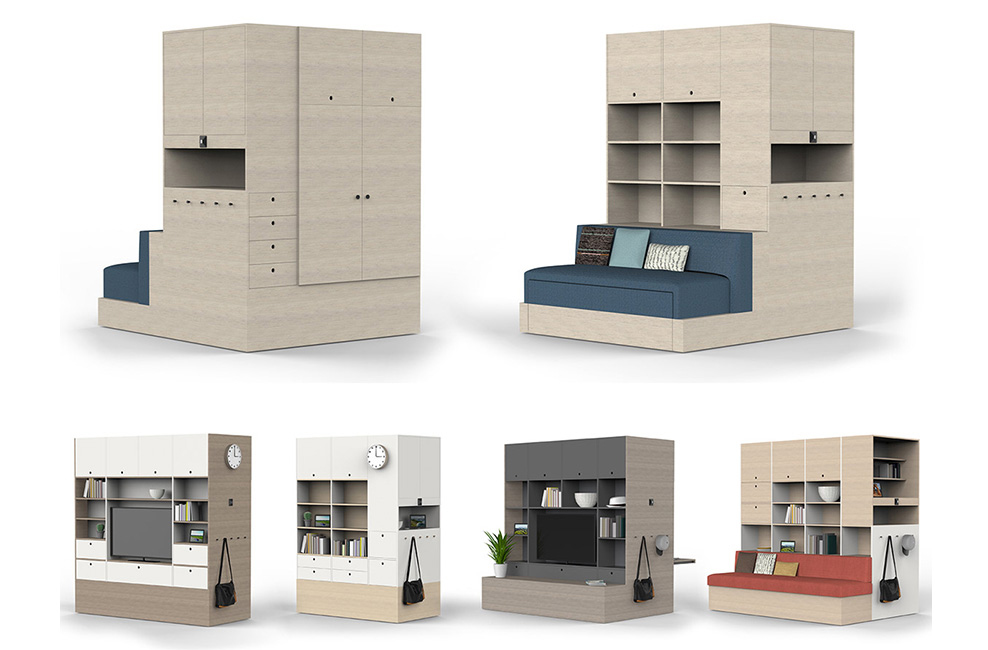The home of the future is one step closer to reality with the launch of Ori Systems’ first product, an all-in-one robotic dresser, desk and bed.
Showrooming in luxury real estate developments in a number of US cities, Ori is debuting its new, modular furniture that enables city-dwellers to do more with less space.
A project from Massachusetts Institute of Technology’s (MIT) famous Media Lab, Ori launched in 2015 as a way to develop research being conducted by MIT professor Kent Larson and graduate student Hasier Larrea.
Collaborating with designer Yves Béhar, using the research from Larrea and Larson, Ori’s combined bed/storage/workspace units were designed to meet the needs of people who are trying to do more in increasingly cramped urban spaces.
Ori’s founders set out to design something that is modular and take advantage of the latest technologies to make space saving as easy for urbanites as possible.
The end product has a retractable bed that can slide in or out at the push of a button from a wall mounted controller, an app on a smart phone, or by using a skill the company has programmed into Alexa, the smart home “personal assistant” from Amazon.
The question for Larrea was how to bring the principles of the robotics he’d worked on for years as an electrical engineer into architecture. He told Techcrunch: “We decided with CityHome [now Ori], that the researchers themselves would be the ones that would bring this to market.”
Looking at what and how to design its first product, Larrea says that he and his co-founder wanted to tackle three problems.
“The first was space … because it’s difficult to have two simultaneous activities going in a small space … the second was the damn bed and where to put it … and the third one is storage … there’s never enough storage,” in a studio apartment, Larrea explains.
Made from a poplar plywood, the system is lightweight and sturdy. Although it’s electrical, if the power goes out, the system is wheeled and lightweight enough that people can change the configuration of the furniture manually.
Ori Systems furniture is designed to be as close to flat pack as possible. But consumers will have to wait a while before an Ori Systems product will show up on any store shelves.
For now, the company is partnering with big name real estate developers to bring the furniture to market and really show off what Ori’s crazy robot furniture can do.
Systems start at a hefty price tag of around USD10,000. Surprisingly, Larrea says that the biggest cost isn’t the robotics in the furniture, but the cost of the furniture itself.
The Ori-equipped studio apartments can be found in cities such as San Francisco, New York and Boston.
By rolling out through property developers, real estate companies can show off that they can have more price per square foot by pitching an Ori System, and Ori can get initial products in the hands of customers.
“Think about it as an appliance… an appliance for space,” says Larrea. “This changes the design paradigm completely. We came from a paradigm where we had to adapt to spaces instead of having spaces that adapt to us … We consider ourselves the brains and the brawn for developing the spaces of the future.”
From Techcrunch

